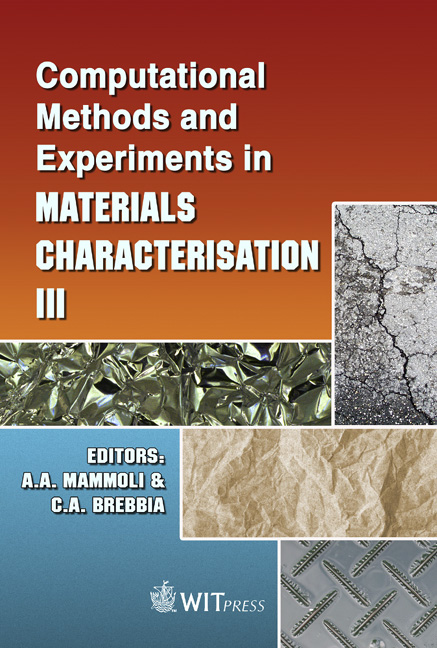Millimeter Wave Spectroscopy And Materials Characterization Of Refractive Liquid Crystal Polymer/titania Composites
Price
Free (open access)
Transaction
Volume
57
Pages
9
Published
2007
Size
415 kb
Paper DOI
10.2495/MC070281
Copyright
WIT Press
Author(s)
B. R. Dantal, A. Saigal, M. A. Zimmerman, K. A. Korolev, M. N. Afsar & U. A. Khan
Abstract
Titanium dioxide (TiO2 or Titania) is one of the most widely used white pigments. Titania is very white and has a very high refractive index. The high refractive index and bright white color of titanium dioxide makes it an effective opacifier for pigments. Light scattering is accomplished by refraction of light as it passes through or near pigment particles (E. McNeil and R. H. French, Multiple Scattering from Rutile TiO2 particles, Acta Materialia, 48(18-19), pp. 4571–4576, 2000). This study deals with the analysis of dielectric properties of a liquid crystal polymer/Titania composite material, in order to better understand the microstructure and the effect of dispersed titanium dioxide particles on the optical properties of the composite material. Complex permittivity, refractive index, absorption coefficient and loss tangent of the composite material have been investigated in the millimeter wave frequency range. The measurements have been performed by using two different techniques: first, free space quasi optical spectrometer equipped with high power sources of millimetre wave radiation tuneable in the 44–90 GHz frequency range and second, Dispersive Fourier Transform Spectrometer (DFTS) in the range of 100–600 GHz. Very low level of losses of millimetre wave radiation has been observed for all samples. Frequency dependences of complex dielectric permittivity have been determined in the broad band millimetre wave range. Strong correlation between dielectric properties and dispersed Titania volume percent has been observed by using the two different techniques. Keywords: polymer composites, reflectivity, refractive index, quasi-optics.
Keywords
polymer composites, reflectivity, refractive index, quasi-optics.





